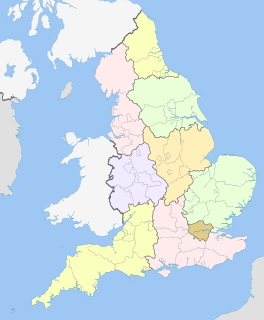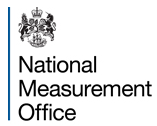Related Research Articles

Customs is an authority or agency in a country responsible for collecting tariffs and for controlling the flow of goods, including animals, transports, personal effects, and hazardous items, into and out of a country. Traditionally, customs has been considered as the fiscal subject that charges customs duties and other taxes on import and export. In recent decades, the views on the functions of customs have considerably expanded and now covers three basic issues: taxation, security, and trade facilitation.

The World Customs Organization (WCO) is an intergovernmental organization headquartered in Brussels, Belgium. The WCO works on customs-related matters including the development of international conventions, instruments, and tools on topics such as commodity classification, valuation, rules of origin, collection of customs revenue, supply chain security, international trade facilitation, customs enforcement activities, combating counterfeiting in support of Intellectual Property Rights (IPR), illegal drug enforcement, combating counterfeiting of medicinal drugs, illegal weapons trading, integrity promotion, and delivering sustainable capacity building to assist with customs reforms and modernization. The WCO maintains the international Harmonized System (HS) goods nomenclature, and administers the technical aspects of the World Trade Organization (WTO) Agreements on Customs Valuation and Rules of Origin.
UN/CEFACT is the United Nations Centre for Trade Facilitation and Electronic Business. It was established as an intergovernmental body of the United Nations Economic Commission for Europe (UNECE) in 1996 and evolved from UNECE's long tradition of work in trade facilitation which began in 1957.
Global Affairs Canada is the department of the Government of Canada that manages Canada's diplomatic and consular relations, promotes Canadian international trade, and leads Canada's international development and humanitarian assistance. It is also responsible for maintaining Canadian government offices abroad with diplomatic and consular status on behalf of all government departments.

UK Export Finance (UKEF) is the operating name of the Export Credits Guarantee Department (ECGD), the United Kingdom's export credit agency and a ministerial department of the UK government. It has been awarded the best global export credit agency for 2019. In 1920, UKEF had a maximum total exposure of just £26mn. Today, its maximum commitment stands at £50bn. It is also celebrating its 100th anniversary as the longest running export credit agency in the world.

Financial services are the economic services provided by the finance industry, which encompasses a broad range of businesses that manage money, including credit unions, banks, credit-card companies, insurance companies, accountancy companies, consumer-finance companies, stock brokerages, investment funds, individual managers, and some government-sponsored enterprises.

The parliamentary committees of the United Kingdom are committees of the Parliament of the United Kingdom. Each consists of a small number of Members of Parliament from the House of Commons, or peers from the House of Lords, or a mix of both, appointed to deal with particular areas or issues; most are made up of members of the Commons. The majority of parliamentary committees are select committees. The remit of these committees vary depending on whether they are committees of the House of Commons or the House of Lords.

In the United Kingdom, regional development agencies (RDAs) were nine non-departmental public bodies established for the purpose of development, primarily economic, of England's Government Office regions between 1998 and 2010. There was one RDA for each of the NUTS level 1 regions of England. Similar activities were carried out in Wales by the Welsh Government Department of Economy and Transport, in Northern Ireland by the Department of Enterprise, Trade and Investment and in Scotland by Scottish Enterprise and Highlands and Islands Enterprise.

Trade facilitation looks at how procedures and controls governing the movement of goods across national borders can be improved to reduce associated cost burdens and maximise efficiency while safeguarding legitimate regulatory objectives. Business costs may be a direct function of collecting information and submitting declarations or an indirect consequence of border checks in the form of delays and associated time penalties, forgone business opportunities and reduced competitiveness.
The Shareholder Executive (ShEx) was a body within the UK Government responsible for managing the government's financial interest in a range of state-owned businesses for commercial rather than political interests. It was part of the Department for Business, Innovation and Skills and staffed by civil servants, many of whom were corporate finance professionals with private sector experience. It was led by Mark Russell as Chief Executive at the time of its closure.

The National Measurement and Regulation Office (NMRO) was an executive agency of the UK Government's Department for Business, Innovation and Skills (BIS). Its function were to provide a measurement infrastructure which supports innovation, facilitates fair competition, promotes international trade and protects consumers and the environment.

The International Trade Centre (ITC) is a multilateral agency which has a joint mandate with the World Trade Organization (WTO) and the United Nations (UN) through the United Nations Conference on Trade and Development (UNCTAD).

UK Trade & Investment (UKTI) was a UK Government department working with businesses based in the United Kingdom to assist their success in international markets, and with overseas investors looking to the UK as an investment destination. It was replaced in July 2016 by the Department for International Trade.
The Export–Import Bank of China is one of three institutional banks in China chartered to implement the state policies in industry, foreign trade, economy, and foreign aid to other developing countries, and provide policy financial support so as to promote the export of Chinese products and services. Established in 1994, the bank is subordinated to the State Council.

An executive agency is a part of a government department that is treated as managerially and budgetarily separate, to carry out some part of the executive functions of the United Kingdom government, Scottish Government, Welsh Government or Northern Ireland Executive. Executive agencies are "machinery of government" devices distinct both from non-ministerial government departments and non-departmental public bodies, each of which enjoy a real legal and constitutional separation from ministerial control. The model was also applied in several other countries.
Following the 2010 United Kingdom general election, the UK Government under the Cameron–Clegg coalition announced plans to curb public spending through the abolition of a large number of quasi-autonomous non-governmental organisations (quangos). This was styled in the national press as a "bonfire of the quangos", making reference to Girolamo Savonarola's religiously inspired Bonfire of the Vanities.
Arab British Chamber of Commerce established 6 February 1975, is an international trade organisation based in the heart of London's prestigious Mayfair. Although a not-for-profit body, its role is to encourage, promote and facilitate trade, investment and joint ventures since 1975 between participating representatives of Arab states and of the United Kingdom (UK).

The Department for Business, Energy and Industrial Strategy (BEIS) is a department of the government of the United Kingdom. The department was formed during a machinery of government change on 14 July 2016, following Theresa May's appointment as Prime Minister, through a merger between the Department for Business, Innovation and Skills (BIS) and the Department of Energy and Climate Change (DECC).
The United Nations Network of Experts for Paperless Trade and Transport in Asia and the Pacific (UNNExT) is a community of trade facilitation specialists and practitioners focusing on simplifying import, export and transit procedures by enabling traders and governments to exchange information electronically and through automated and integrated systems, including national and regional Single window. The Network has made significant contributions to the development of Trade facilitation and Paperless trade in the region.
References
- ↑ "Archived copy" (PDF). Archived from the original (PDF) on 2008-09-09. Retrieved 2008-08-16.
{{cite web}}: CS1 maint: archived copy as title (link) - ↑ Cable announces further quango closures Archived 2010-07-23 at the Wayback Machine